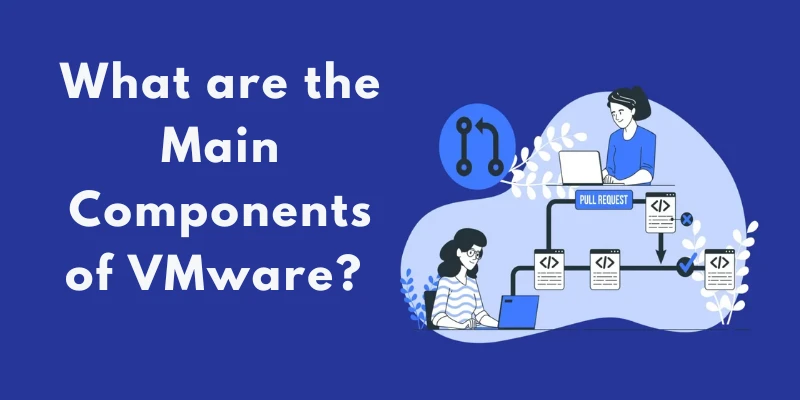
In today’s fast-paced digital world, companies are looking for ways to optimize their IT systems. VMware, a leading provider of virtualization technology, allows companies to run multiple operating systems on a single physical machine. This not only saves resources but also improves flexibility and scalability. With VMware’s suite of tools, businesses can streamline operations, increase performance, and reduce costs. For those wanting to boost their VMware skills, VMware Training in Chennai offers expert-led learning and practical experience.
What is VMware ?
VMware is a global leader in cloud infrastructure and virtualization technology. The uses of VMware tools enhances its capabilities by allowing businesses to efficiently manage virtual machines, networks, and storage. VMware enables organizations to run multiple operating systems on a single physical server, improving efficiency, flexibility, and scalability, making it essential for optimizing IT infrastructure.
Main Components of VMware
1) VMware vSphere
At the heart of VMware’s virtualization offerings is vSphere. This is the platform that enables the virtualization of servers. It includes several important tools, such as VMware ESXi and vCenter Server, which together manage virtual machines (VMs) and host hardware.
ESXi is a hypervisor, which is software that allows multiple operating systems to run on a single physical server. It provides the foundation for creating and running virtual machines. Linux Training in Chennai can complement this knowledge by equipping professionals with the skills to manage Linux-based virtual environments, which are often used in conjunction with VMware. vCenter Server, on the other hand, is used for managing the virtual environment.
2) VMware vSAN
Another important component is vSAN (Virtual Storage Area Network), which is a software-defined storage solution. It allows businesses to pool and manage their storage resources efficiently. Instead of relying on traditional hardware storage systems, vSAN uses local storage from the hosts in the VMware cluster to create a unified storage pool.
With vSAN, organizations can scale storage as needed without the need for complex hardware configurations. It integrates seamlessly with VMware vSphere, providing a high-performance, cost-effective way to manage storage resources.
3) VMware NSX
NSX is VMware’s network virtualization platform. It decouples the network from the physical hardware and allows businesses to create, manage, and secure virtual networks. It is particularly useful in a software-defined data center, where resources like storage, computer, and networking are abstracted from the physical hardware.
NSX helps businesses manage network traffic, apply security policies, and enable automation in the network layer. For those looking to master these capabilities, a VMware Course in Chennai can provide in-depth knowledge and hands-on experience with VMware’s network virtualization tools.
4) VMware vRealize Suite
The vRealize Suite is a set of cloud management tools that provides automation, monitoring, and operational insight across VMware environments. It consists of several products, such as vRealize Operations, vRealize Automation, and vRealize Log Insight, which together allow businesses to optimize performance, automate workflows, and troubleshoot issues efficiently.
With vRealize, IT teams can automate repetitive tasks, set up self-service portals for users, and monitor the implementation of applications and infrastructure in real-time.
5) VMware Horizon
Horizon is VMware’s solution for virtual desktop infrastructure (VDI). One of the key benefits of VMware is the ability to deliver secure, remote desktop experiences to employees, no matter where they are. With Horizon, users can access a virtual desktop or application, while the IT team retains full control over the environment.
This component is especially useful in today’s remote work era, enabling employees to access company resources securely from their personal devices. It simplifies management for IT administrators by centralizing desktop and application delivery, improving security, and reducing costs by eliminating the need for individual desktop hardware.
6) VMware Cloud Foundation
For organizations looking to run hybrid cloud environments, VMware Cloud Foundation is a key component. It provides an integrated solution that combines vSphere, vSAN, NSX, and vRealize Suite into a single platform. This enables businesses to manage both on-premises and public cloud resources with ease.
Cloud Foundation simplifies private cloud deployment and supports cloud-based applications. FITA Academy offers courses to help you master cloud infrastructure solutions.
VMware has confirmed itself as a leading player in virtualization and cloud infrastructure, providing businesses with the tools to maximize efficiency and reduce costs. The key components of VMware, such as vSphere, vSAN, NSX, vRealize, Horizon, and Cloud Foundation, work together to provide a comprehensive solution for managing and optimizing IT environments.